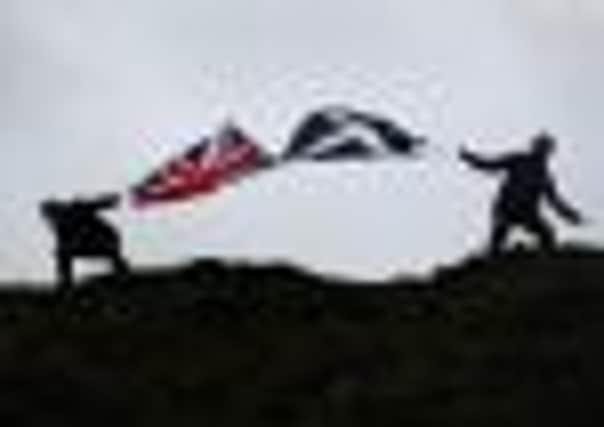Analysis: Citizens of this sceptred isle are divided by patriotism


Today’s poll helps us to understand why. Those living south of the Border respond readily to symbols of Britishness in way many Scots do not. As a result, the country’s sense of English identity is underdeveloped, and sometimes is regarded with a degree of doubt and suspicion.
Nothing is more British than the Union Flag. And it is a symbol that still makes many an English heart swell with pride. Four out of five south of the Border say they associate the flag with “pride and patriotism”. In Scotland, not many more than half do so.
Advertisement
Hide AdAdvertisement
Hide AdIn other respects too, the Union Flag evokes a more positive response in England. People there are more likely than those in Scotland to say the flag reminds them of sacrifice in war, and of democracy and tolerance. They are also more likely to think that it symbolises a modern, diverse country.
Among Scots it is the Saltire that is more likely to make them feel proud and patriotic, or to invoke the feeling that they are living in a country that is modern and diverse, and cherishes democracy and tolerance. In contrast, the St George’s Cross leaves many in England unmoved, while for nearly one in four it is a symbol of racism and extremism.
At the apex of the British state is the Queen. People on both sides of the Border share an understanding of her symbolic significance – about four in five agree the Union Flag and the monarchy go together. Yet their reactions to the monarchy are rather different. Most people in England say the Queen is one of their sources of pride in being English – note that is English, not British. In Scotland, only half as many say the Queen makes them proud to be Scottish.
While most people in Scotland acknowledge being both British and Scottish, unlike many of their counterparts in England they are also more readily aware of the difference. Yet despite all this, there is one respect in which the two countries are in remarkable agreement – on what it takes to be considered English or Scottish. In both countries, it is for many a question of birth, with about three-quarters saying it is important to have been born in the country to claim to be English/Scottish.
Few – and especially in Scotland – also say that such a claim can only be made if you are white. But we should not assume that Scotland is necessarily more willing to embrace newcomers than its English – or should it be British – neighbour.
Acceptance everywhere, it seems, is gradual.
• John Curtice is professor of politics at Strathclyde University.